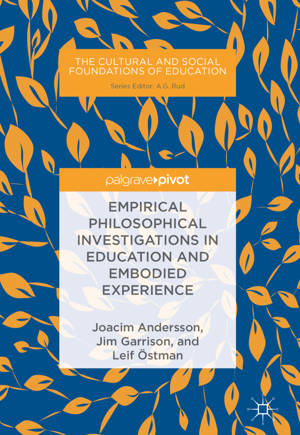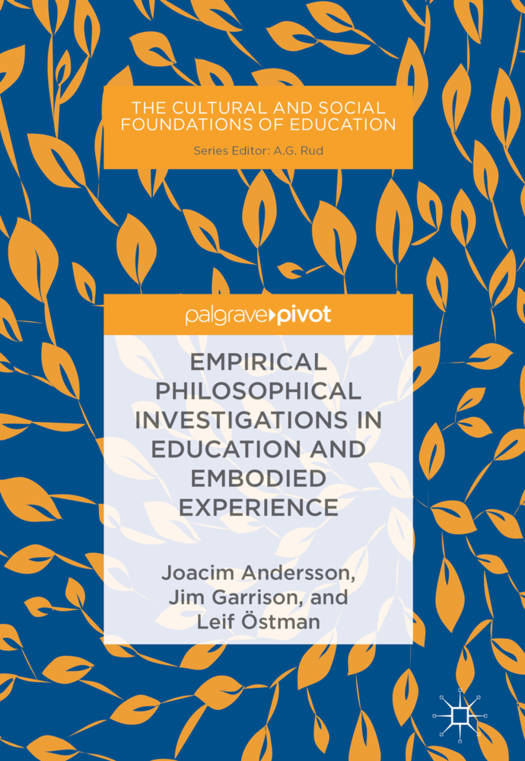
Bedankt voor het vertrouwen het afgelopen jaar! Om jou te bedanken bieden we GRATIS verzending (in België) aan op alles gedurende de hele maand januari.
- Afhalen na 1 uur in een winkel met voorraad
- In januari gratis thuislevering in België
- Ruim aanbod met 7 miljoen producten
Bedankt voor het vertrouwen het afgelopen jaar! Om jou te bedanken bieden we GRATIS verzending (in België) aan op alles gedurende de hele maand januari.
- Afhalen na 1 uur in een winkel met voorraad
- In januari gratis thuislevering in België
- Ruim aanbod met 7 miljoen producten
Zoeken
Empirical Philosophical Investigations in Education and Embodied Experience
Joacim Andersson, Jim Garrison, Leif Östman
€ 83,95
+ 167 punten
Uitvoering
Omschrijving
Drawing on John Dewey and the later Ludwig Wittgenstein, this book employs philosophy as a conceptual resource to develop new methodological and analytical tools for conducting in situ empirical investigations. Chapter one explores the philosophies of Wittgenstein and Dewey. Chapter two exposits Deweyan ideas of embodiment, the primacy of the aesthetic encounter, and aesthetically expressive meaning underdeveloped in Wittgenstein. Chapter three introduces the method of practical epistemological analysis (PEA) and a model of situated epistemic relations (SER) to investigate the learning of body techniques in dinghy sailing. The concluding chapter introduces a model of situated artistic relations (SAR) to investigate the learning of artistic techniques of self-expression in the Swedish sloyd classroom.
Specificaties
Betrokkenen
- Auteur(s):
- Uitgeverij:
Inhoud
- Aantal bladzijden:
- 145
- Taal:
- Engels
- Reeks:
Eigenschappen
- Productcode (EAN):
- 9783319746081
- Verschijningsdatum:
- 20/04/2018
- Uitvoering:
- Hardcover
- Formaat:
- Genaaid
- Afmetingen:
- 148 mm x 210 mm
- Gewicht:
- 349 g

Alleen bij Standaard Boekhandel
+ 167 punten op je klantenkaart van Standaard Boekhandel
Beoordelingen
We publiceren alleen reviews die voldoen aan de voorwaarden voor reviews. Bekijk onze voorwaarden voor reviews.









